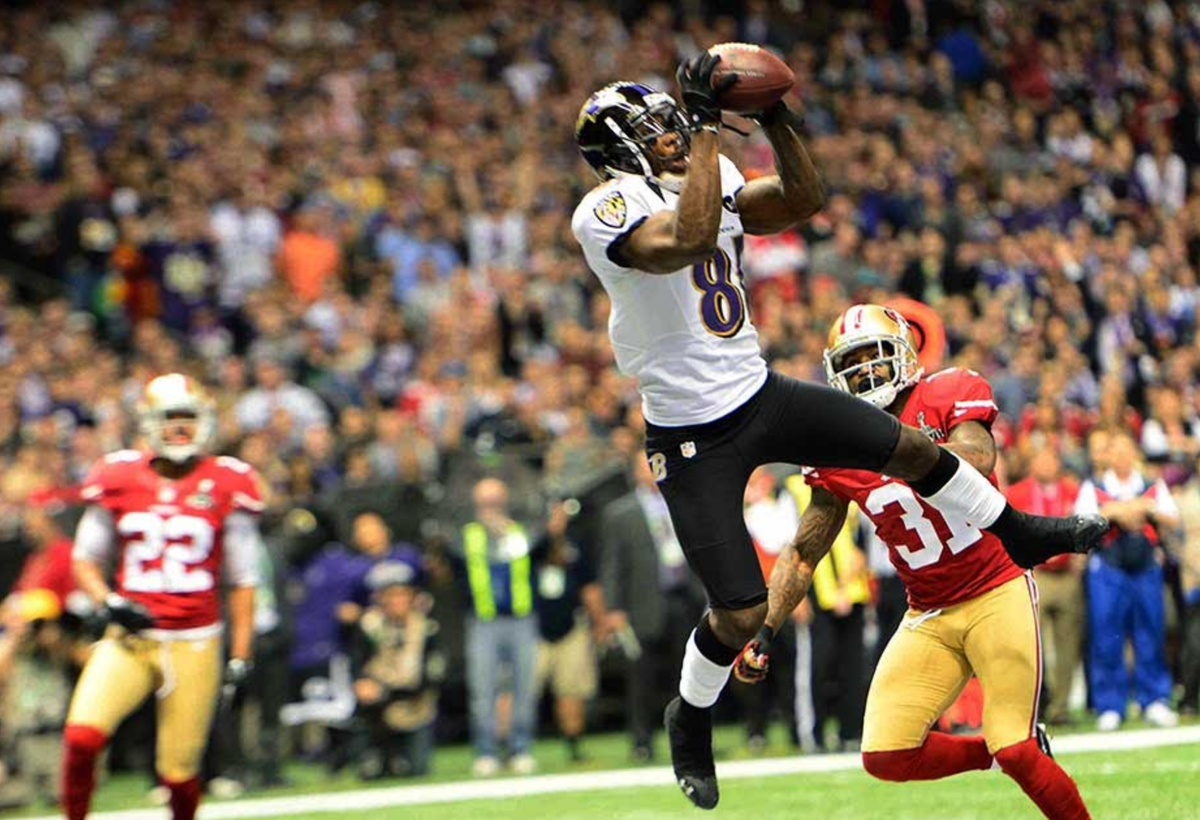Super Bowl XLVII: The Harbaugh Bowl – A Clash of Brothers, Power, and Destiny

On February 3, 2013, the Mercedes-Benz Superdome in New Orleans hosted what would become one of the most electrifying and emotionally charged Super Bowls in NFL history: Super Bowl XLVII, a clash between the Baltimore Ravens and the San Francisco 49ers. Beyond the headlines of touchdowns and turnovers, this game etched itself in football lore for its gripping narratives: two brothers coaching against each other, a momentum-shifting power outage, and the symbolic rise and fall of dynasties.
The Battle of the Brothers
The game was the first Super Bowl in history to feature two head coaches who were siblings: John Harbaugh of the Ravens and Jim Harbaugh of the 49ers. Dubbed the "Harbaugh Bowl" or “Har-Bowl,” the matchup added layers of emotional intensity and intrigue before the first snap.
"There's never been anything quite like Super Bowl XLVII," said Carl Dennison, senior analyst at the Super Bowl Historical Society. "Not only did it bring two legendary franchises together, but it also captured the unique tension of family pride on the world’s biggest stage."
John and Jim Harbaugh were both intense, driven, and respected by their players. But only one would hoist the Lombardi Trophy.
A Game of Halves: Ravens Dominate Early
From the opening kickoff, Baltimore controlled the first half. Joe Flacco, often labeled a “game manager,” silenced his critics with a performance worthy of elite status. The Ravens quarterback threw three touchdowns in the first half, including a 56-yard strike to Jacoby Jones, giving Baltimore a commanding 21–6 halftime lead.
Flacco's first-half brilliance was matched by the Ravens’ defense, which harassed 49ers quarterback Colin Kaepernick, bottling up San Francisco’s powerful run game and forcing errant throws. Baltimore entered halftime with a 21–6 lead, and moments later, Jacoby Jones returned the second-half kickoff 108 yards, the longest play in Super Bowl history.
The scoreboard read 28–6, and it felt like the Ravens were on their way to a blowout.
The Blackout Heard Around the World
Then, something completely unexpected happened: the power went out in the Superdome.
For 34 surreal minutes, half of the stadium sat in darkness while players stretched on the field, coaches conferred, and fans sat in stunned silence. The delay not only stalled the game but seemed to reset the 49ers, who came out of the outage as an entirely different team.
"The power outage was like a cosmic reboot," remarked Rosa Mitchell, curator at the Super Bowl Historical Society. "San Francisco rose from the ashes, and Baltimore was left scrambling to regain its footing."
49ers Roar Back
Fueled by the dual-threat ability of Colin Kaepernick, the 49ers mounted a furious comeback. In just over four minutes of game time, San Francisco scored 17 unanswered points, closing the gap to 28–23. Kaepernick connected with Michael Crabtree for a touchdown, and running back Frank Gore punched one in from six yards out.
On the ensuing possession, Kaepernick ran the ball himself for a 15-yard touchdown—the longest rushing TD by a quarterback in Super Bowl history. However, the two-point conversion failed, and Baltimore held a fragile 31–29 lead.
The Goal Line Stand
The game’s defining moment came with just under two minutes left. The 49ers marched to Baltimore’s 5-yard line and had first-and-goal, trailing by five. The Ravens’ defense, led by veteran linebacker Ray Lewis in the final game of his career, bent but did not break.
After three incomplete passes, the 49ers called a controversial fade route to Michael Crabtree. Under pressure, Kaepernick's pass sailed high and out of bounds. Many debated whether pass interference should have been called.
The Ravens took over on downs and strategically ran down the clock, taking a safety in the final seconds to avoid a punt return. Final score: Ravens 34, 49ers 31.
MVP Joe Flacco: From Ordinary to Legendary
Joe Flacco was named Super Bowl MVP, finishing 22-of-33 for 287 yards and three touchdowns with zero interceptions. His flawless postseason—11 touchdowns and zero picks—capped one of the most dominant playoff performances by any quarterback in league history.
"It was the defining game of Flacco’s career," said Dennison. "He may never be in the GOAT conversation, but for four games that postseason, he was as good as anyone has ever been."

Ravens’ Defense and the End of an Era
Though much was made of Flacco’s offensive heroics, the Ravens’ defense deserves recognition. Playing without the speed of old, they relied on veteran savvy. Ray Lewis, Ed Reed, Terrell Suggs, and Haloti Ngata made clutch plays when it counted most, particularly in the red zone.
For Lewis, this was a storybook ending—retiring as a champion after 17 seasons, 13 Pro Bowls, and two Super Bowl titles.
"It's poetic justice for Ray Lewis," Mitchell noted. "He was the emotional center of this team, and to see him go out on top was one of the great closing chapters in NFL history."
San Francisco’s Almost-Miracle
Despite the heartbreak, the 49ers proved their resilience. Colin Kaepernick, in just his 10th career start, finished with 302 passing yards and 62 rushing yards, nearly leading the biggest comeback in Super Bowl history.
Frank Gore ran for 110 yards, and the defense eventually slowed the Ravens enough to give the offense a shot at victory. But the failure to convert inside the five-yard line haunted them.
For Jim Harbaugh, it was a bitter pill. A win would have given the 49ers their sixth Super Bowl title, tying them with Pittsburgh. Instead, he watched his brother take the crown.
Legacy and Aftermath
Super Bowl XLVII represented the end of one chapter and the start of another. The Ravens would begin to retool, while the 49ers continued to contend in the NFC. But the emotional magnitude of the game—and the stories that surrounded it—are what cement its place in NFL history.
In the words of Carl Dennison: “This wasn’t just a football game. It was a Shakespearean drama played on turf—with triumph, heartbreak, and the ultimate family rivalry.”
Final Score:
Baltimore Ravens 34 – San Francisco 49ers 31
Key Stats:
- MVP: Joe Flacco – 22/33, 287 yards, 3 TD
- Colin Kaepernick: 302 passing yards, 1 TD, 1 INT; 62 rushing yards, 1 TD
- Jacoby Jones: 108-yard kickoff return TD, 56-yard TD reception
- Frank Gore: 110 rushing yards, 1 TD
- Michael Crabtree: 5 receptions, 109 yards, 1 TD
